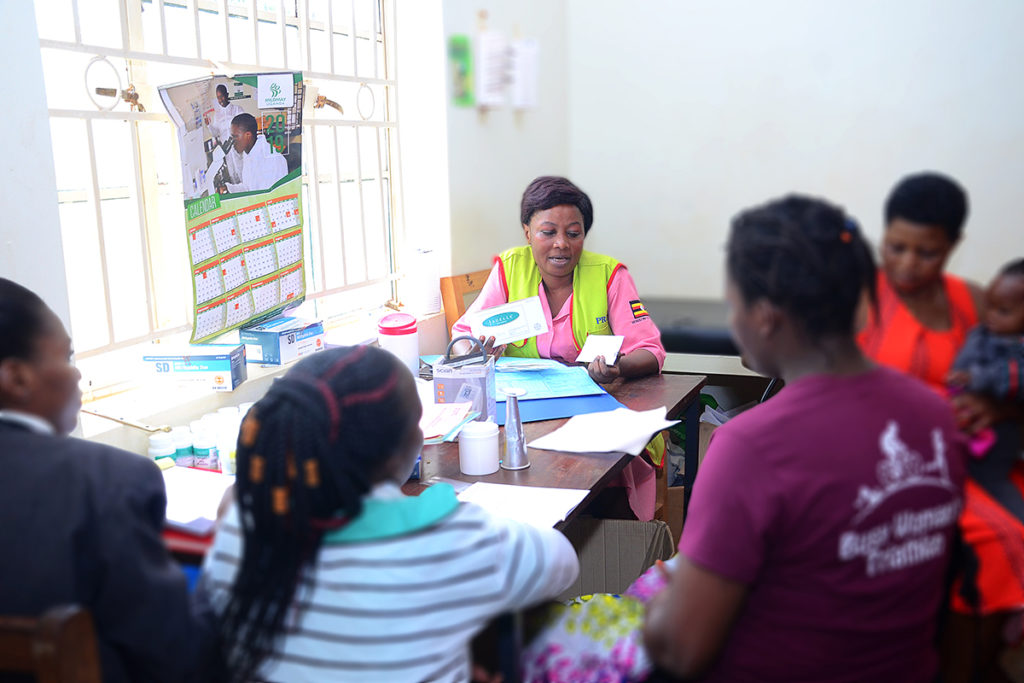
Uganda is now in the 6th week of the total lock-down in a bid to prevent and control the spread of COVID-19. The Government/National Task force has combined efforts with District Task forces, Individuals, Civil Society Organizations and Communities in the prevention and control of COVID-19. This is a rare time when all-of-us are united to one cause, near to the discovery of HIV in Uganda (1981).
Resilient Communities
Communities have shown that they are more resilient than our leadership, systems and structures. When the decision was announced by the President of the Republic of Uganda for a total lock down with no public and private movements except for the essential services, the country was given only 2 hours for the decision to be upheld. Shocking as it was to most people with no prior knowledge of whether communities would survive, three (weeks) now into the lock-down, communities are holding their families and providing everything even with most people in the informal sector. Everyone suddenly seems to care about their neighbor’s health-care, food, psycho-social support and the list goes on. We remain eternally grateful to the resilience of communities.
What can the COVID-19 learn from the HIV Community?
Integration:
Delivery of services can be done in an integrated manner. The HIV service provision, case in point, even with many disruptions has remained steadfast. Everybody is committed to upholding the gains registered in the past years without letting them get washed away as a result of the lock-down. The Ministries of government can and must work together to deliver a comprehensive package to communities and homes that are locked-down. Such a package could include but not limited to food, reproductive health tools like family planning, school packages for school children, COVID-19 Information, Education and Communication (IEC) materials and prevention tools like soap.
Make use of the community systems and structures already in place:
Over the last 35 years Civil Society Organizations have invested in building systems and structures that have been used effectively to deal with epidemics like Ebola and HIV. Through these structures, a wide range of services like community mobilization & sensitization, education, advocacy and service delivery have been made. In the build up to a road-map of prevention and control of COVID-19, this community seems to have been left behind and yet it could have played a critical role. The community is literally struggling on its own to fit-in. So why build an investment that cannot be used to serve a purpose where there is a glaring gap?
Stigma, Discrimination and human rights:
The HIV community has taught us that stigma and discrimination drives people into hiding and fails any response. We have also learnt that policies and programmes must adhere to protection of human rights and that is the only way to achieve greater public health outcomes. COVID-19 is not different! Treating people with dignity and respect is not a negotiable – whether they are suspected or tested positive to Corona virus. Language is very important and the earlier we get the language that can globally be used and acceptable the better. Let words like ‘cases’ be used in laboratories and by epidemiologists but this is not our language because we are talking about people, who are human beings before and after.
Multi-sectoral approach to ending COVID-19:
Like it was for HIV, COVID-19 requires a multi-sectoral approach. It is this approach that led to the establishment of Uganda AIDS Commission. Under Uganda AIDS Commission, every Ugandan (individuals, private sector, religious leaders, civil society organizations, government ministries and people living with HIV rallied behind, and Uganda is still remembered as a success story in the fight against HIV&AIDS. COVID-19 is far beyond the Ministry of Health, the Ministry Disaster Preparedness and other ministries. Bring on board as many representatives as they all matter including those who have lived with COVID-19, for their experience matters a lot in informing policy, programming and implementation.
Let COVID-19 learn from the existing knowledge, structures and systems.
For God and my Country
Lillian Mworeko is the Executive Director at the International Community of Women Living with Hiv(ICWEA)



